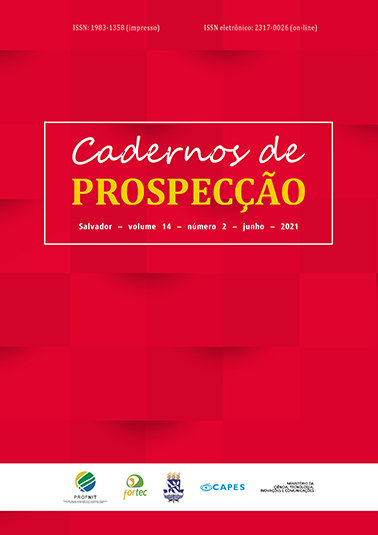Science, Technology, Innovation and a year of Pandemic in Brazil
DOI:
https://doi.org/10.9771/cp.v14i2.43901Keywords:
Science, Technology, Innovation, Pandemic.Abstract
In this month of March 2021, the pandemic caused by the SARS-COV-2 virus officially completed one year in Brazil and there is still no sign of a slowdown in the rate of contagion or loss of life. We are, in fact, in a second and stronger wave. However, there are already important aspects to be noted, both with respect to the obvious negatives and some positives. Since the beginning of this crisis, there has been an unprecedented mobilization of professionals from different origins, backgrounds and connections, both from the government and from academic institutions and companies, with the most diverse parallel activities. These professionals are working to design, test and produce equipment, drugs and vaccines; organize, process and publish data; propose and carry out tests to detect contagion; support economically vulnerable populations; create and adapt mathematical models to make projections; guide and communicate the situation to the public; produce protective instruments for health professionals; and even to evaluate and publish scientific works related to the effort to fight the pandemic. These works are being published, frequently, in special editions and accelerated through the concentrated efforts of the editorial teams of the magazines, as is also being done by Cadernos de Prospecção. Fortunately, unlike a year ago, there are now several vaccines available and tested, some with local production, although at an insufficient pace and under constant risk of the emergence of variants that escape them. In addition, of the countries included in the so-called BRICS, only Brazil and South Africa do not have their own vaccine approved and, despite the efforts of companies, governments and institutions, we still depend on agreements for the supply of imported inputs, both for vaccines and for tests.The main aspect in which Brazil is definitely not performing well is political coordination and the organization of minimum consensus to combat the common problem. Interestingly, of the terms all too often repeated throughout the complex maelstrom of conflict between authorities and leadership, it was "science" that apparently reached a disputed status unheard of in our country. However, recent measures of the Republic's powers, at different levels, demonstrate in practice the oblivion that, if Science, Technology and Innovation (ST&I) is really understood to be important, both in this historic challenge and in others that we really need to overcome, ST&I depends, like any human activity, on material means, on a certain institutional predictability and on support to be carried out successfully, more than speeches. Technological prospecting uses advanced techniques and detailed data to assess trends in the behavior of important sectors, actors and topics. Some predictions, however, are even easy to make based on recent experience. Previous decisions to delay and abandon strategic investments have brought us to this particular position of dependence on vaccines, tests and supplies. Such "economy of resources" today costs us dearly, both in lives and in economic activity itself. Repeating the same mistake and expecting good results does not seem sensible. In fact, it was precisely what Einstein cited as the definition of madness. Altogether, this edition of Cadernos de Prospecção brings together 23 articles by 87 authors representing 22 Brazilian organizations from 14 Brazilian Federation Units located in four regions of Brazil and the Federal District. We wish you all an excellent read!
Downloads
Download data is not yet available.
Downloads
Published
2021-04-01
How to Cite
Segundo, G. A. S. (2021). Science, Technology, Innovation and a year of Pandemic in Brazil. Cadernos De Prospecção, 14(2), 330. https://doi.org/10.9771/cp.v14i2.43901
Issue
Section
Editorial
License
Copyright (c) 2021 Cadernos de Prospecção

This work is licensed under a Creative Commons Attribution-NonCommercial 4.0 International License.
O autor declara que: - Todos os autores foram nomeados. - Está submetendo o manuscrito com o consentimento dos outros autores. - Caso o trabalho submetido tiver sido contratado por algum empregador, tem o consentimento do referido empregador. - Os autores estão cientes de que é condição de publicação que os manuscritos submetidos a esta revista não tenham sido publicados anteriormente e não sejam submetidos ou publicados simultaneamente em outro periódico sem prévia autorização do Conselho Editorial. - Os autores concordam que o seu artigo ou parte dele possa ser distribuído e/ou reproduzido por qualquer forma, incluindo traduções, desde que sejam citados de modo completo esta revista e os autores do manuscrito. - Revista Cadernos de Prospecção está licenciado com uma Licença Creative Commons Attribution 4.0. Esta licença permite que outros remixem, adaptem e criem a partir do seu trabalho para fins não comerciais, e embora os novos trabalhos tenham de lhe atribuir o devido crédito e não possam ser usados para fins comerciais, os usuários não têm de licenciar esses trabalhos derivados sob os mesmos termos.
Este obra está licenciado com uma Licença Creative Commons Atribuição 4.0 Internacional.





